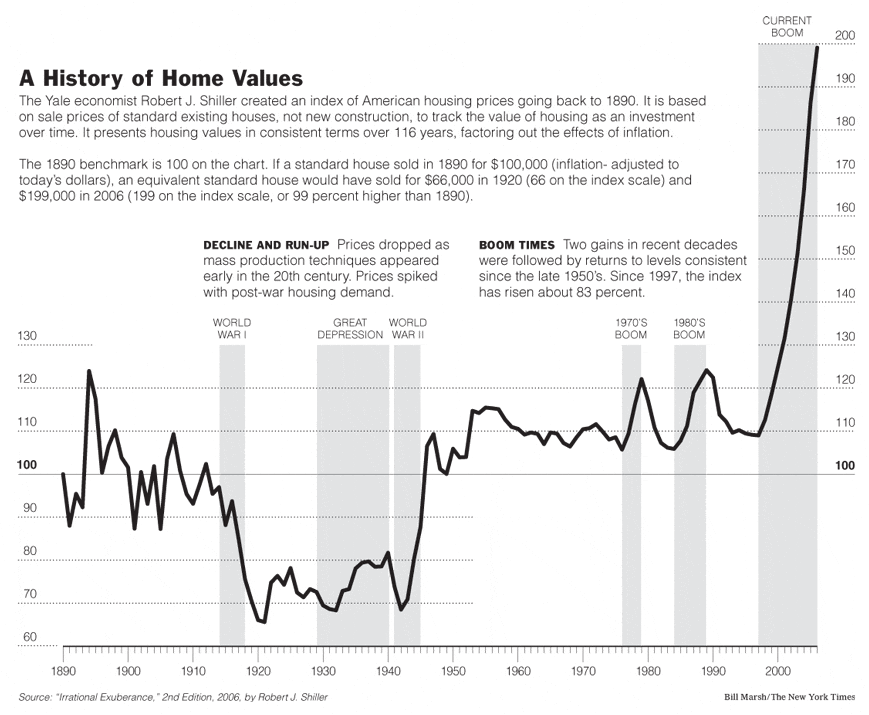A great read by Paul Krugman. A few exerts below.
Few economists saw our current crisis coming, but this predictive failure was the least of the fields problems. More important was the professions blindness to the very possibility of catastrophic failures in a market economy. During the golden years, financial economists came to believe that markets were inherently stable indeed, that stocks and other assets were always priced just right. There was nothing in the prevailing models suggesting the possibility of the kind of collapse that happened last year. ...
Unfortunately, this romanticized and sanitized vision of the economy led most economists to ignore all the things that can go wrong. They turned a blind eye to the limitations of human rationality that often lead to bubbles and busts; to the problems of institutions that run amok; to the imperfections of markets especially financial markets that can cause the economys operating system to undergo sudden, unpredictable crashes; and to the dangers created when regulators dont believe in regulation. ...
Keynes considered it a very bad idea to let such markets, in which speculators spent their time chasing one anothers tails, dictate important business decisions: When the capital development of a country becomes a by-product of the activities of a casino, the job is likely to be ill-done. By 1970 or so, however, the study of financial markets seemed to have been taken over by Voltaires Dr. Pangloss, who insisted that we live in the best of all possible worlds. Discussion of investor irrationality, of bubbles, of destructive speculation had virtually disappeared from academic discourse. The field was dominated by the efficient-market hypothesis, promulgated by Eugene Fama of the University of Chicago, which claims that financial markets price assets precisely at their intrinsic worth given all publicly available information. (The price of a companys stock, for example, always accurately reflects the companys value given the information available on the companys earnings, its business prospects and so on.) ...
Finance theorists continued to believe that their models were essentially right, and so did many people making real-world decisions. Not least among these was Alan Greenspan, who was then the Fed chairman and a long-time supporter of financial deregulation whose rejection of calls to rein in subprime lending or address the ever-inflating housing bubble rested in large part on the belief that modern financial economics had everything under control. There was a telling moment in 2005, at a conference held to honor Greenspans tenure at the Fed. One brave attendee, Raghuram Rajan (of the University of Chicago, surprisingly), presented a paper warning that the financial system was taking on potentially dangerous levels of risk. He was mocked by almost all present including, by the way, Larry Summers, who dismissed his warnings as misguided. ...
Take, for example, the precipitous rise and fall of housing prices. Some economists, notably Robert Shiller, did identify the bubble and warn of painful consequences if it were to burst. Yet key policy makers failed to see the obvious. In 2004, Alan Greenspan dismissed talk of a housing bubble: a national severe price distortion, he declared, was most unlikely. Home-price increases, Ben Bernanke said in 2005, largely reflect strong economic fundamentals. ...
But there was something else going on: a general belief that bubbles just dont happen. Whats striking, when you reread Greenspans assurances, is that they werent based on evidence they were based on the a priori assertion that there simply cant be a bubble in housing. And the finance theorists were even more adamant on this point. In a 2007 interview, Eugene Fama, the father of the efficient-market hypothesis, declared that the word bubble drives me nuts, and went on to explain why we can trust the housing market: Housing markets are less liquid, but people are very careful when they buy houses. Its typically the biggest investment theyre going to make, so they look around very carefully and they compare prices. The bidding process is very detailed.
Indeed, home buyers generally do carefully compare prices that is, they compare the price of their potential purchase with the prices of other houses. But this says nothing about whether the overall price of houses is justified. Its ketchup economics, again: because a two-quart bottle of ketchup costs twice as much as a one-quart bottle, finance theorists declare that the price of ketchup must be right.
In short, the belief in efficient financial markets blinded many if not most economists to the emergence of the biggest financial bubble in history. And efficient-market theory also played a significant role in inflating that bubble in the first place. ...


